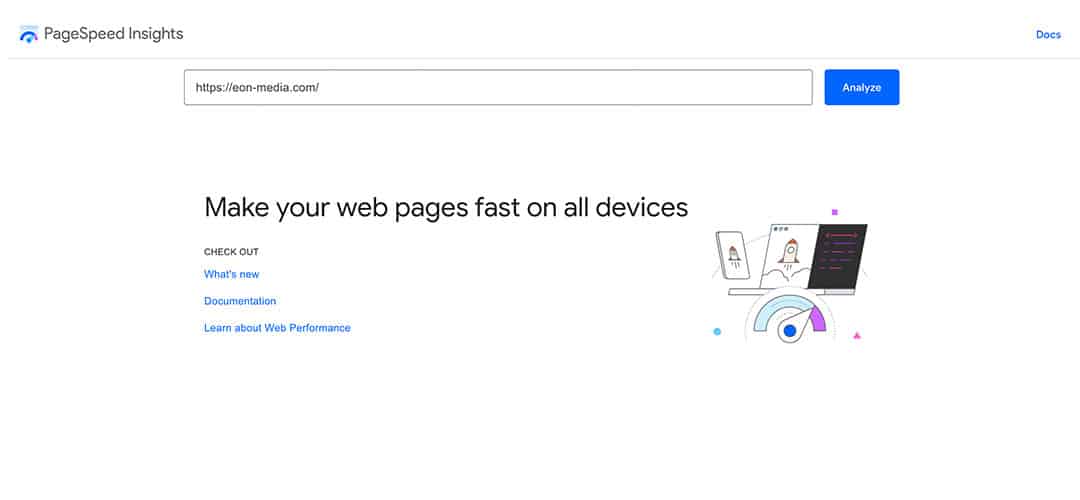SEO mistakes are easy to make, especially for the uninitated, so it can be a good idea to speak to an expert. Nailing your SEO strategy can be the difference between marketing success and failure, so t’s important that you research your current consumers as well as those you want to target for growth to ensure you’re meeting their search and purchase needs. Once you understand and implement the basics, you can place your business far ahead of the competiton! That is why we are going to explain the 7 most common SEO mistakes that beginners make and how to avoid making them.
Table of Contents
7 SEO Mistakes You MUST Avoid Making!
1. Ignoring User Intent with Keyword Research
When you’re conducting initial research for your SEO strategy, you need to be looking at keywords. These are the searches that you want to target with your webpage or blog post. One of the most common SEO mistakes people make it focusing solely on a high search volume. You might find a great keyword that seems relevant and gets a tonne of searches, but in reality, is it what your customers are looking for?
You need to ensure your targeted keywords are aligned with their intent, whether that be navigational, commercial, informational, or transactional. If you’re not what they’re looking for, your bounce rate will increase and search engines are likely to penalise you for it.
Here are the most common search intents and what they mean:
Commercial
Users are researching purchase options, looking for additional information or are ready to buy.
Transactional
Users are ready to make a specific purchase.
Informational
Users looking for either specific or general information/answers.
Navigational
Users are looking for a specific brand or location either for information or to make a purchase.
Furthermore, it is important to look at the keyword difficulty. This is a score that tells you how difficult it is to rank for a specific keyword. Often longer keywords, aka. long-tail keywords are much easier to rank for, and tend to indicate a specific search intent.

2. Keyword Stuffing
It might seem like the right thing to try and populate your webpage with your targeted keyword as often as possible. And in theory, this is correct. You want to ensure you have a decent keyword density (having your keyword mentioned throughout your copy) without compromising the natural readability of the text, which you can view with plugins like Rank Math or Yoast,
Algorithms penalise keyword stuffing (using your keyword too frequently), which is likely to negatively impact your SEO ranking as a result of overloading. As a general rule of thumb, aim for a keyword density of around 1-2% to maintain the readability and please the search engines, and avoid this common SEO mistake!
3. Neglecting Mobile Optimisation
It should be no surprise that websites that are not optimised for mobile will be less likely to rank well. With an increasing amount of searches being done on mobile, it is vital that you prioritise mobile optimisation for all of your website builds, designs and SEO strategies.
You can frequently test your website responsiveness and performance to ensure you’re proactively improving user experience for both website and mobile. Mobile usability issues can be identified using a range of SEO tools, such as Google Search Console.
4. Page Speed
Simply put, slow website load speeds equal a poor user experience. Poor user experience equals a high bounce rate. A high bounce rate equals poor SEO performance.
Neglecting page speed is a simple SEO mistake to make, especially when you’re implementing new and fun designs. Be sure to compress images and consider the use of videos and file types when navigating your page speed. Check out Page Speed Insights regularly to get a review of your website and actionable data.

5. Failing to Use Internal Linking Strategically
Internal linking helps both users and search engines navigate your website intuitively and simply. Using internal linking is a great way to showcase the relationships between your webpages and bring visibility to similar and relevant content. It’s important to avoid unrelated links and use appropriate, descriptive anchor text when linking to internal and external pages. Anchor text refers to the words you hyperlink. Where possible, use relavant keywords instead of simply saying ‘click here’.
6. Understanding Backlinks
Backlink strategies can easily forgotten, which can prove to be a costly SEO mistake. They are crucial for building domain authority, particularly in the eyes of search engines. There are lots of link building strategies for you to consider, but the most important thing is to avoid spammy link building sites. You’ve probably received a few dodgy emails advertising link building catalogues, promising you 1,000 high quality backlinks, but don’t fall for it. Focus on PR, digital outreach, networking and guest posting, as well as creating shareable content.
7. Not Tracking & Analysing Performance
Perhaps one of the most common and significant SEO mistakes is not analysing data and performance. It’s an easy mistake to make but it’s vital for growth and development. Use GA4 or Google Search Console, as well as an SEO tool like Moz to track traffic and rankings and gain data driven insights into your performance. Like all marketing activities, it is important to monitor SEO and continually update to see results.

If you need support avoiding SEO mistakes, get in touch and discover how our team of marketing experts can help! Whether you need support, or would rather have us take the burden off your shoulders completetly, we are primed and ready to help.


